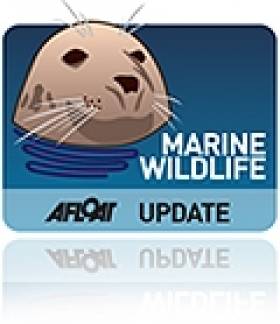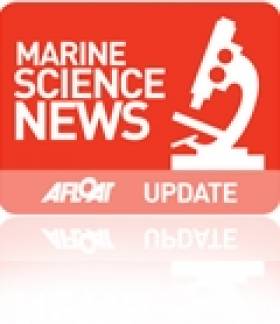Displaying items by tag: North Atlantic
North Atlantic Killer Whales Feeding on Sunfish Says IWDG
#MARINE WILDLIFE - The Irish Whale and Dolphin Group (IWDG) has recorded another first for the North Atlantic, with evidence showing that killer whales are feeding on ocean sunfish.
Mark Holmes of the Natural History Museum confirmed the presence of parasites unique to the sunfish found within the carcass of a female orca stranded in Doohooma in Co Mayo.
"These parasites did not originate from the whale's stomach, but came from the prey which it had eaten," said the IWDG's Conor Ryan.
"This was confirmed when the partially digested bones in the stomachs were eventually identified as those of a sunfish beak."
The discovery may explain a recent study of UK waters which found sunfish taking unusually deep dives, possibly to avoid cetaceans and other large predators.
State Research Body Backs Call for Marine Protected Areas
Speaking from the launch of the report in Bergen, Norway, Minister of State with responsibility for Sustainable Transport, Horticulture, Planning and Heritage, Mr. Ciaran Cuffe T.D. said that Ireland welcomed this evidence-based assessment of the marine environment as a 'major milestone.'
"Such periodic holistic assessments are essential 'barometers' allowing policy makers to gauge overall progress towards sustainable management and identify those actions essential to deliver clean, diverse, healthy and productive seas around us," said Minister Cuffe. "Such actions are critical to maintaining our seas and oceans as a sustainable resource for this and future generations."
According to the Report, climate change and ocean acidification effects are now evident especially in the northern OSPAR areas. In addition, human uses of the marine environment, such as offshore renewable energy, offshore oil and gas production, mineral extraction and shipping, are increasing and must be managed in a coordinated way, backed up by research on impacts, if environmental damage is to be avoided.
Furthermore, the decline in biodiversity is far from being halted and actions, such as extending the network of offshore Marine Protected Areas (MPAs), are required to improve the protection of threatened and/or declining species and habitats. In December 2009 Ireland designated 19 MPAs including 4 offshore MPAs.
However, the Report states that there has been progress in reducing pollution from nutrients, certain hazardous substances and radioactive substances in our oceans and seas, although continued efforts are needed. In addition, there have been improvements in fisheries management, although fishing activities continue to have large impacts on marine ecosystems in the seas around Ireland.
"The Marine Institute is delighted to have participated closely in the development and production of this assessment by acting as the focal point for Irish involvement in the process and by providing data and scientific input," said Dr. Peter Heffernan, CEO of the Marine Institute. The QSR 2010 Report is a product of cooperation between many experts from 15 OSPAR countries. The Department of Environment, Health and Local Government act as Head of Delegation for Ireland to OSPAR.































































